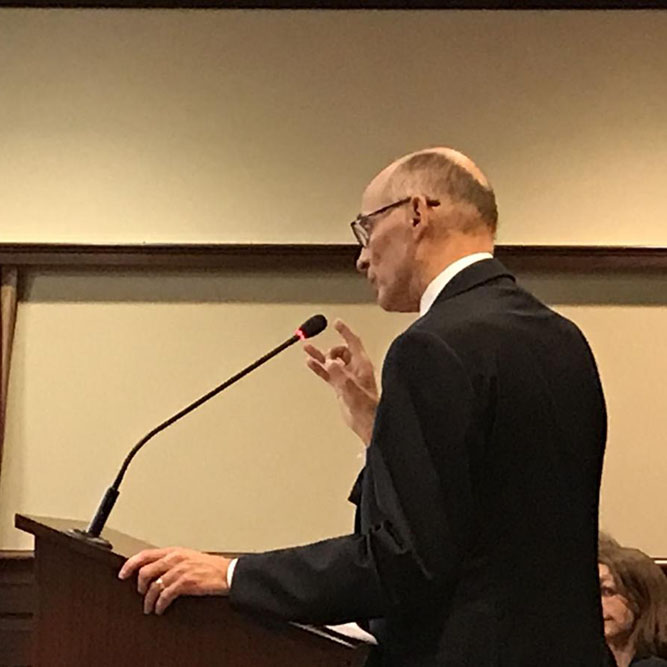Last year, in 2020, House Bill 567 went before the Idaho State’s By Ways and Means Committee. That piece of legislation, called the Kratom Truth in Labeling Act, was a version of the Kratom Consumer Protection Act (KCPA) meant for Idaho. And kratom advocates were hoping it would pass without a hitch. However, the Idaho Freedom Foundation (IFF), a libertarian think tank, contested the measure. Apparently, the IFF pushed back because the bill would impose registration fees and regulations on kratom vendors in the state.
Still, the introduction of the KCPA gave the kratom community hope that another state was within grasp. But now, Republican Senator C. Scott Grow recently introduced a measure to prohibit the legalization of psychoactive substances that have not been approved by the Food and Drug Administration (FDA). The proposed amendment has the goal of eradicating any chances of voters legalizing cannabis through voter ballot initiatives. It appears the legislators are trying to create an impenetrable wall against advocates for marijuana reform. The elected leaders are running scared because a medical marijuana initiative failed to make it on the 2020 ballot. But they might not get so lucky in the next election without an amended constitution.
The proposed amendment seeks to add another section to Article III, the Legislative Department portion, of the Idaho Constitution. But the additional segment of legalization could create more complications for botanical industries in the future, pushing the legislative branch into more authoritarian jurisdiction of regulating personal liberties regarding plant medicines.
Senator of Idaho Proposes Constitutional Amendment
During the first month of the newly elected congressional session in Idaho, Senator C. Scott Grow proposed a constitutional amendment to make any non-FDA-approved psychoactive substance illegal. The legislation is called the Senate Joint Resolution 101. And the resolution states the legalization of federally unapproved psychoactive drugs have profound negative impacts on the citizens of Idaho. Plus, it says that any psychoactive drug the FDA has not approved should be considered dangerous to the people.
After reading the proposed legislation, it came as no surprise that the senator who sponsored the amendment is a 72-year-old religious representative. For the most part, older evangelicals seek to impact legislation with their personal beliefs rather than the enlightened principles that molded our federal constitution. Instead, they wish to take away the freedom and ability to explore the botanical potential of nature. And that was not what the Founding Fathers wanted at the birth of this great nation. So it makes one distraught to watch elected leaders destroy parts of our country’s foundation.
The goal of the bill seeks to give the FDA authorization for determining the legality of psychoactive substances. And according to Senator Grow, he wants the amendment to “protect and preserve Idaho and keep it from being overrun with the drug culture that comes with the legalization of these illicit drugs and that ensures the health and safety of our families, our children, and our community.” Yet, the Senator fails to address how any therapeutic plant can endanger its citizenry.
A Limited Public Hearing was Held on the Issue
Limited public seating was available in the committee room on Monday, January 25, 2021, for the public to observe the meeting. Most times, legislators give the public an adequate amount of time to hear and make a case for or against any new legislation. But whenever elected officials try to sneak unwanted and unnecessary legislation through the backdoor, like the current proposed amendment, they keep that window of time to a restricted duration. That way, the state legislators have a better chance of ramming it through the political process. Our elected leaders prefer making laws without the hassle of representing the constituents that voted for them. Too many people questioning the legitimacy of such legislation creates a problem for lawmakers. It stops elected representatives from performing favors for corporate sponsors in the shadows.
The amendment was worded in a disingenuous manner. The tone of the piece intends to make the audience believe the FDA safeguards the populace from harmful substances. And without the agency’s consent, any materials that are not FDA approved should be regarded as dangerous drugs. However, the FDA is the same agency that approved every addictive prescription medication on the market. It approves dangerous drugs all the time. The opioid epidemic in our country arose on the back of all the prescription pain medications it approved. And it culminated with one of the largest pharmaceutical companies, Purdue Pharma, pleading guilty for their crimes against Americans at the end of 2020.
The Proposed Amendment Is Characterized by the Temperance Movement
The joint resolution argues the amendment is to create legislation that upholds Section 24, Article III, of the Constitution of the State of Idaho. It’s the “Promotion of Temperance and Morality” section, which states the “first concern of all good government is the virtue and sobriety of the people.” Now, mind you, the Idaho State Constitution was adopted back in 1890. So it was written during the temperance movement. And that social movement pushed for its legislators to ban intoxicating substances. That temperance movement was the backbone of similar campaigns gaining traction in the next few decades. And those movements climaxed three decades later. In the early 1920s, religious groups demanded for the federal government to prohibit alcohol consumption. So the US government produced laws to outlaw the sale, ingestion, and possession of alcohol in the country, which began the Prohibition era in the US.
Now, everyone who studied US history should know what occurred after the federal government began its Prohibition practices across the nation. It provided a steppingstone for organized crime syndicates in our country to gain a foothold in the nation. Al Capone cemented his position as the de facto gang leader in the city of Chicago. And his war with the government brought plenty of bloodshed with it. Luckily for Americans, the precipitous rise in crime and violence was short-lived. The populace pushed back against the 18th Amendment. As a result, President Franklin Delano Roosevelt repealed Prohibition on December 5th, 1933.
The Citizens of Idaho Can Stop the Amendment
While things worked out for the best after the US government repealed Prohibition, Americans suffered before our government did the right thing. Numerous criminal enterprises flourished under the draconian legislation. And the law-abiding citizens took the brunt of the force. Also, people had their liberties stripped from them by authoritative laws that were unconstitutional.
However, for Senate Joint Resolution 101 to become law, it must first pass the house and senate with two-thirds approval. Then the resolution would go before the Idahoan constituents in the 2022 election. Should the bill make it that far, it would only need a simple majority vote to become law.
So if the Idaho Congressional does vote the proposal forward, it will be imperative for all Idaho citizens to make sure the bill doesn’t come to fruition. While the bill doesn’t specify kratom within the amendment, the wording does allow for different interpretations for future legislation. All it would take is an anti-kratom advocacy group to use the amendment as a rallying call for the reason kratom should be deemed illegal. After all, the amendment uses the FDA as a pillar of support for the law.
But the proposed amendment still has an uphill battle to face. First, the legislators in both the Idaho House and Senate must vote and pass the proposition. So that allows kratom advocates a chance to voice their concerns with elected representatives. And after that, it still needs to go through with the voters before it gets set in stone.






